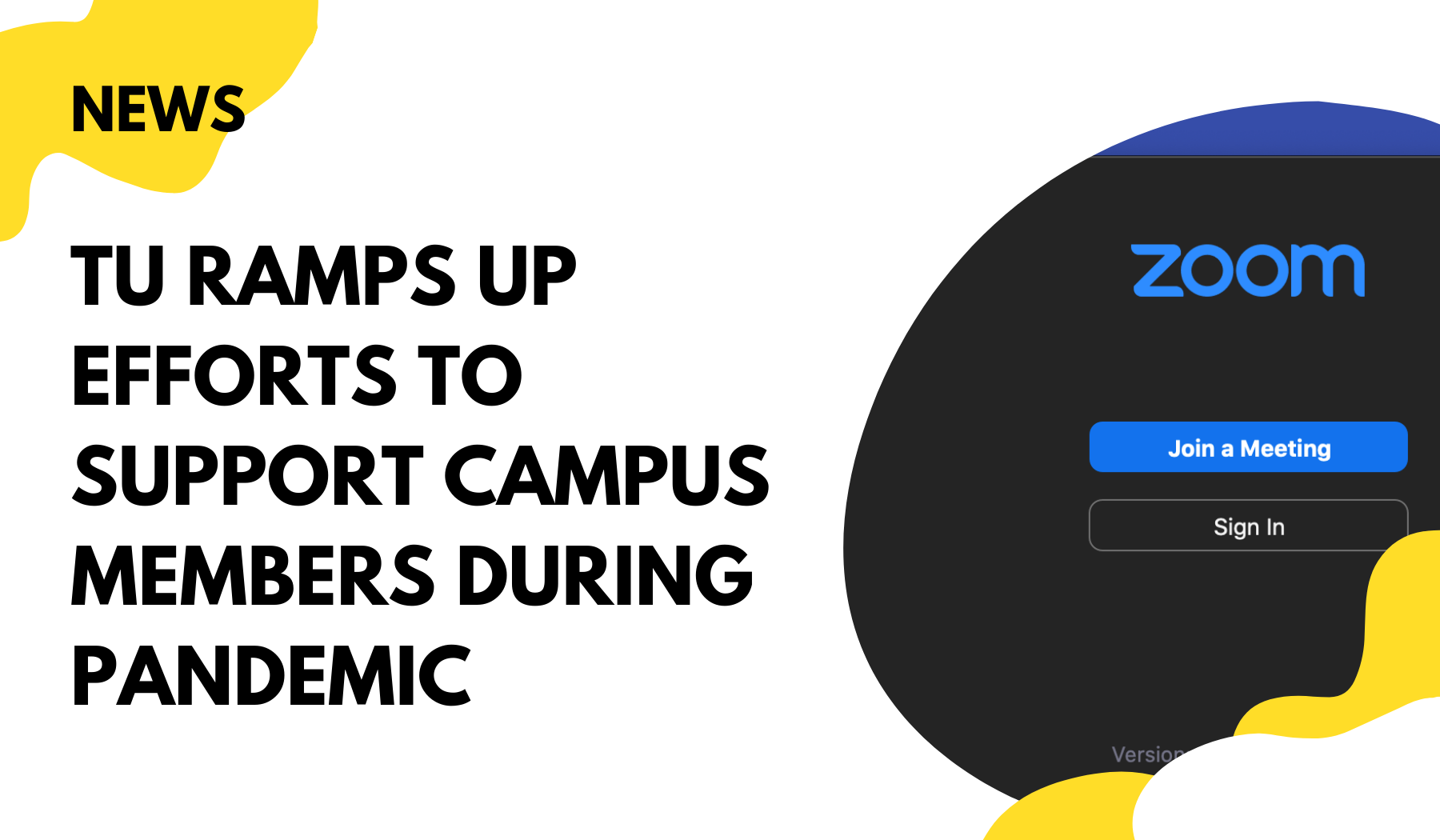
TU ramps up efforts to address campus needs during COVID-19
By: Grace Coughlan, Associate Editor
Towson University (TU) has altered the way they provide support and accessibility in terms of technology and materials for students and faculty during the COVID-19 pandemic.
The Office of Accessibility & Disability Services (ADS), Faculty Academic Center of Excellence at Towson (FACET) and the Office of Technology Services (OTS) have continued to provide students and faculty with the resources they need to successfully learn and teach in a virtual setting.
Patricia Westerman, Assistant Provost of FACET, explained how FACET worked closely with ADS and OTS to strengthen the connection between faculty and students shortly after the onset of the pandemic.
“FACET has worked with our partners in OTS and in Accessibility and Disability Services (ADS) to determine faculty needs in supporting student accessibility,” Westerman explained. “The One-Stop Shop and the voluntary online course checklist reflect evidence-based practice in providing needed resources to students.”
While aiding students in adjusting to learning in a virtual setting, they also aid faculty in learning how to teach through the online setting as well.
“Beginning in March 2020, FACET worked with Office of Technology Services (OTS) to provide hundreds of faculty with material about online teaching via webinars and one-on-one instructional design support,” Westerman said. “FACET’s online course templates were adopted by many faculty and five intensive workshop sessions were provided during summer 2020, supporting 550 Towson University faculty in learning about and then applying their knowledge regarding online and hybrid pedagogy.”
Faculty can schedule one-on-one consultations with FACET to address specific teaching needs. In addition, FACET created self-assessment resources to guide faculty through the virtual workspace..
‘FACET will work throughout spring 2021 to assess and support the needs of faculty in their online and hybrid teaching while looking to a future in which teaching and learning can return to “normal” with many lessons learned during a challenging time,’ Westerman said.
Also playing a pivotal role through the pandemic, OTS offers technology services to both students and faculty.
According to Associate Vice President for Student Affairs and Dean of Students, Anthony Skevakis, OTS helped provide technology to students who didn’t have access to it at home.
“Our OTS staff took the lead in also assisting students to get laptops,” Skevakis said. “So they were loaner laptops, where they were actually mailed to their homes, to be able to use them for the springtime or for a period of time during their courses.”
Also seeing an increased need for their services is ADS. They reported an increase from 10% of students enrolled for services to roughly 65% of students who have faced challenges with their courses as a result of the pandemic.
“Prior to the pandemic, the largest population of students seeking accommodations through ADS were those with mental health related disabilities (anxiety, depression, obsessive compulsive disorder, etc.),” ADS’ website reads. “Many of these students are likely experiencing increased symptoms and may require additional flexibility and support during this time. For some students with disabilities such as learning disabilities, ADHD, and autism spectrum disorder, the virtual environment is not optimal for learning. Routines and learning strategies that were previously effective for students, may no longer be available when classes are held remotely.”
According to ADS, during online learning, students expressed hardships with paying attention to classes on a virtual platform, organization, misunderstanding information due to the lack of in-person connection and less time to complete assignments. Students also note that they experienced poor mental health symptoms due to virtual learning.
ADS encourages faculty to be more flexible and understanding with students during the pandemic. They also emphasize the use of concrete course information with multiple methods of accessibility like captions in videos and the use of Universal Diverse Learning (UDL), an educational method targeted toward a variety of actions to support students.
For students looking for more information in registering with ADS, visit their website. Faculty members looking to receive more teaching support can reach out to [email protected].


Thank you for your sharing. I am worried that I lack creative ideas. It is your article that makes me full of hope. Thank you. But, I have a question, can you help me?
Thank you for your sharing. I am worried that I lack creative ideas. It is your article that makes me full of hope. Thank you. But, I have a question, can you help me? https://accounts.binance.com/bg/register-person?ref=WTOZ531Y
Reading your article helped me a lot and I agree with you. But I still have some doubts, can you clarify for me? I’ll keep an eye out for your answers.